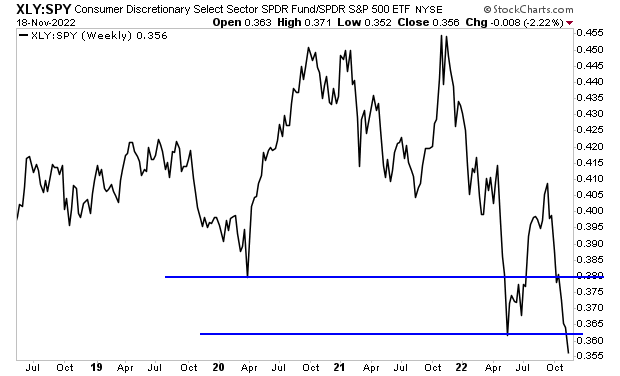This article/post contains references to products or services from one or more of our advertisers or partners. We may receive compensation when you click on links to those products or services
There are many ways to invest in real estate. Buying and managing properties is very hands-on and requires a large initial investment. This might limit individual investors to, at most, single family homes. While investing in a multi-family apartment building is attractive, these larger properties also require a high level of management expertise, in addition to the large upfront buy-in.
One of the more passive ways to invest in larger properties is through a process called real estate syndication. This is when investors pool together money to jointly purchase a large property selected and managed by a syndicator or general partner.
Syndications are typically invested in large, income-producing properties such as apartment buildings, office buildings, mobile home parks, self-storage units and commercial buildings. Below, we cover how they work and their pros and cons.
The Short Version:
- Real estate syndication allows individuals to passively invest in large commercial deals with all the benefits of direct property ownership.
- In a syndication deal, investors provide the money and the syndicator provides asset acquisition and asset management expertise.
- Syndication deals are only available to accredited or sophisticated investors.
How Does a Real Estate Syndication Deal Work?
The real estate syndicator is an active participant. They’re responsible for structuring the deal and operating the syndication. Their job typically includes:
- Property acquisition – Finding the property, negotiating the purchase with the seller, arranging financing, and closing the deal.
- Property/Asset management – Conception and management of the business plan, coordination of property improvements, maintenance and repairs, and both originating and managing rental leases.
- Investor relations – Finding investors to fund the deal, communicating with the investors, and financial management including reporting via the proper forms to the investors.
In essence, the syndicator is responsible for delivering the promised ROI to the investors which involves managing all aspects of the investment.
The real estate investor is the passive participant. They’re responsible for providing a portion of the funds needed to acquire the property in exchange for a fractional ownership share of the property. If an investor puts up 20% of the funds, their ownership share would typically be equivalent to 20%.
While owning a piece of the property, investors receive monthly or quarterly income distributions of the asset’s return on investment and enjoy the tax benefits of property ownership. When the property is sold, the investors get the return of their investment as well as a share of the appreciation.
Learn more >>> Is Real Estate a Good Investment Right Now?
How Do Syndications in Real Estate Make Money?
There are several ways real estate syndications make money for their investors. Typically, the investors are putting up the bulk of the money. The syndicator, meanwhile, is contributing expertise, hands-on management and a smaller percentage of the money needed to fund the operation.
Syndicators are compensated for their part in fees for property acquisition and asset management. However, investors usually earn more — in short-term cash flow and long-term property appreciation — because they put in the majority of the necessary capital.
If the property is going to be rented out to tenants, the investors will get a percentage of the rental income profits. If the property is sold, investors will get a percentage of the sale proceeds, which includes appreciation if there is any.
Sample Real Estate Syndication Deal
Let’s say, for example, you’re one of 6 investors contributing 15%, or $150,000, to purchase a 10-unit apartment building listed at $1 million. The syndicator is contributing 10%. Fully rented, the building produces a net income of $150,000 a year. Your annual share of rental income is what you contribute: 15% or $22,500.
The business plan is to sell in 10 years. Assuming the building appreciates and sells for a net $1.25 million, your share of the sale proceeds is 15% or $187,500.
In the end, you’ll have gained $262,500 on your initial investment of $150,000: That’s the $37,500 from the sale of the property, plus $225,000 in total rental income over 10 years. Not a bad return!
Just be careful >>> What Is Due Diligence in Real Estate? (Best Practices, Tips)
Who Is Eligible To Participate in a Syndication?
Before investing in a real estate syndication, you must verify that you are either an accredited investor or a sophisticated investor.
An accredited investor has an annual income of $200,000 ($300,000 if married) or a net worth (excluding their primary residence) of $1,000,000.
A sophisticated investor must have an in-depth knowledge of and experience with real estate investing to participate in a syndication deal. They should be qualified to accurately evaluate the merits and risks of a prospective investment before giving their approval to close the deal.
Certain real estate syndications, such as a 506C offering, may only be offered to accredited investors as set forth by the Securities and Exchange Commission (SEC).
Most are structured as limited liability companies (LLCs) with the syndicator being the owner and investors having certain rights (as members). The LLC documents define voting rights, profit distribution, reporting requirements and communication practices.
Pros and Cons of Real Estate Syndications
pros
- The ability to invest in larger deals. Investing in deals that are much larger than a single investor could do on their own often provides economies of scale advantages and higher payouts.
- Getting the benefits of tangible property ownership. As a syndication investor, the three biggest benefits of real property ownership pass onto you: Cash flow, the opportunity to participate in property appreciation gains when the property is sold, and ongoing tax breaks.
- Passive income. Once invested, the checks just show up in your account.
- No-hassle property investing. Your part is 100% passive. No fielding calls from tenants, no worries about finding and placing tenants. The syndicator takes care of all that.
- Possible appreciation benefits. You receive a portion of the property appreciation that’s commensurate with your ownership share. Keep in mind that most apartment buildings are commercial properties valued by the monthly income they produce. They don’t typically appreciate at the rate of single-family homes.
- Possible tax benefits. Owning investment properties has unique tax benefits and these are typically passed onto the passive investor in syndication deals.
- Fractional ownership of tangible property. Syndication investors own real property. With a REIT, you own shares of the LLC, not the properties it is invested in.
- Investors have some control. Typically, the investor chooses which properties to invest in, maintaining some control on property acquisitions that make sense to them. This isn’t the case with REITs where the management makes all acquisition decisions.
- Diversification. Fractional ownership in multiple syndications allows investors to own a share of different property types and locations. For example, one investor can be part owner in a storage unit facility in Texas while also being part owner in an apartment building in Milwaukee.
cons
- High minimum investment. Some syndications are listed on crowdfunding platforms, allowing investments by a lot of investors and low minimum investments. However, most are word of mouth and involve a larger share of the deal and a higher minimum investment.
- Investors have no asset management control. As an investor, your role is to put up the money. The syndicator has complete decision-making power and you have no say in how the investment is managed.
- Long term investment. Real estate investing is long-term. Typically, the business plan for owning a syndication asset is multiple years. If you need your return on investment sooner, this model might not be for you.
The Takeaway: Syndication Can Be Profitable — Just Proceed With Caution
Just as there’s no one physical property exactly like any other property, there’s no one-size-fits-all type of syndication arrangement. So there will be some syndications that are more profitable for investors than others.
Due diligence is key. Make sure the syndicator has the expertise and experience to manage the asset for profitability. And if you decide to move forward, evaluate the opportunity itself. Go over location, property condition, market viability, likelihood of property appreciation, and most importantly, ongoing cash flow to fund regular and predictable investor distributions (your ROI).
Finally, make sure that you’re able to stay invested for the long term so that can you get the maximum benefit from your investment.
What to know before investing in property >>>















